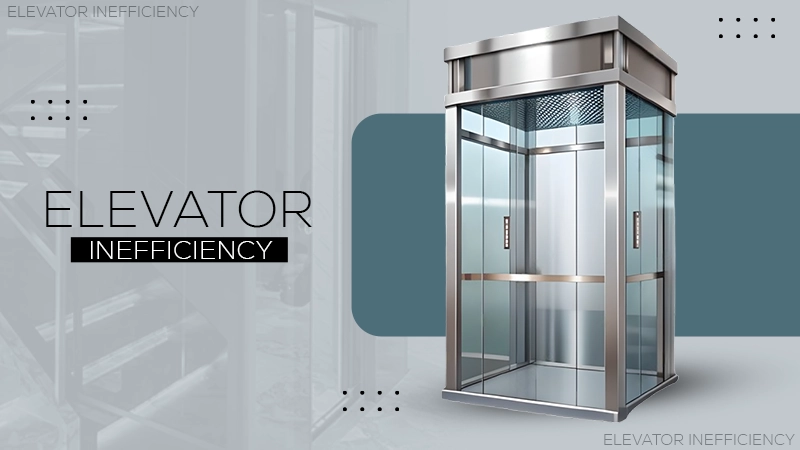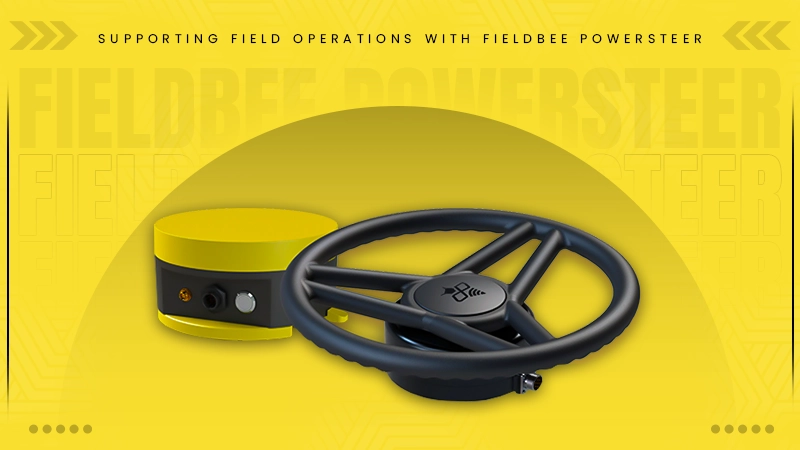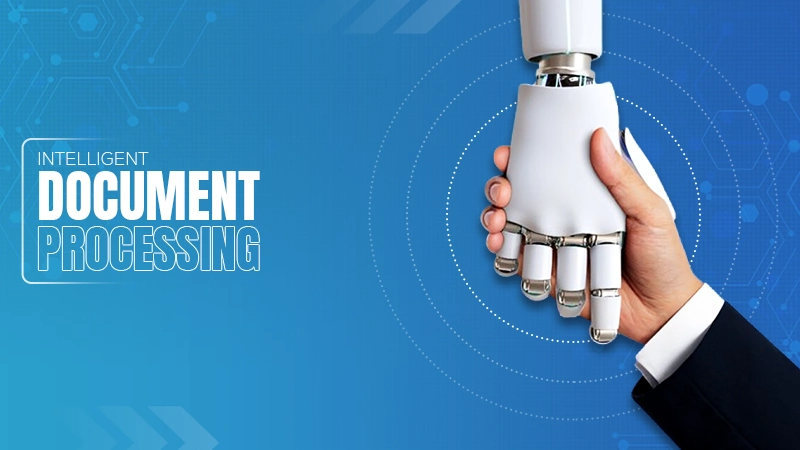Patient Data Privacy: A Priority in Medical Courier Operations
Jump To Key Section
- The Growing Importance of Data Privacy in Healthcare Logistics
- Legal and Regulatory Landscape
- Technological Innovations in Data Privacy
- Best Practices in Protecting Patient Data
- The Role of Medical Couriers in Healthcare
- The Impact of Data Breaches in Healthcare
- Looking Ahead: The Future of Medical Courier Operations
- Upholding Trust and Excellence in Medical Courier Services
The Growing Importance of Data Privacy in Healthcare Logistics
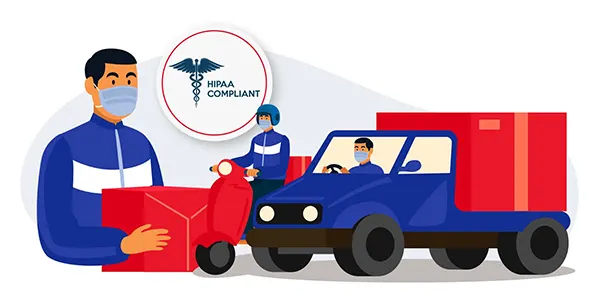
Today’s health industry is largely dependent on the timely and safe delivery of medical supplies. However, growing concerns regarding data privacy breaches, have alerted the governing bodies to create strict cybersecurity policies.
Once the reports are lost, it disrupts the system, causes anxiety in patients involved, and a tainted reputation for the hospital firms. Therefore, secure and efficient transportation of medicinal items is highly relevant, retaining client’s trust.
The consequences of data threats in healthcare logistics often lead to legal and financial repercussions. To avoid heavy damage, this article will help in understanding the intricacies of maintaining privacy in medical courier operations. We will also cover the legal frameworks involved and technological innovations that can be utilized efficiently.
Legal and Regulatory Landscape
Understanding HIPAA and Other Data Protection Laws
HIPAA or the Health Insurance Portability and Accountability Act in the U.S. sets the standard for patient data protection, with strict guidelines for medical couriers.
Additionally, international laws like the General Data Protection (GDPR) in the EU impact global operations. If a medicinal company has access to Protected Health Information (PHI) in any way, then awareness and constant vigilance of these regulations are helpful in avoiding penalties.
Compliance Challenges in Courier Operations
Handling pharmaceuticals and other necessary health-related equipment is challenging while following multiple compliance regulations. Regular training of experienced staff is worth investing in, especially for emergencies like the COVID pandemic.
Most of the courier workers should be medically certified to come into contact with the clinical goods. Regular training also provides them with updated industry protocols like temperature-controlled vehicles in emergencies.
There should be established notification and remedial action procedures in preparation for potential data threats and hacks.
DO YOU KNOW?
The medical courier service workers have a basic knowledge of human anatomy and the fundamentals of medicine, to ensure that everything from lab samples to heavy medical machinery can be handled with the necessary care.
Role of Technology in Compliance
Exploring advanced technology in the preventive sector is a proven blessing to create a robust and efficient system. It assists hospitals in securing digital platforms by enabling safe data handling with real-time tracking.
This aids in compliance and operational productivity, taking the help of innovations like blockchain and automation.
Future Legal Trends
As digital healthcare evolves, so will the legal framework for patient data privacy. Couriers must stay informed of legal developments and proactively implement compliance strategies to stay updated.
Technological Innovations in Data Privacy
Encryption and Secure Data Transmission
Safeguarding client reports can be easily implemented through upgraded software that has encryption. Medical delivery agents must use this advanced digitization for transmitting sensitive information during communication and secure data storage.
Real-Time Data Tracking and Control
Real-time tracking systems have proven effective in maintaining trust in medicinal courier operations. By utilizing it, hospitals and companies can monitor sensitive deliveries and take immediate action in case of any irregularities.
Impact of Artificial Intelligence and Machine Learning
AI and ML technologies improve privacy, efficiently detecting and responding to breaches and analyzing reports handling patterns to mitigate risks. Prioritizing these technologies to their best advantages creates a safe and seamless delivery procedure.
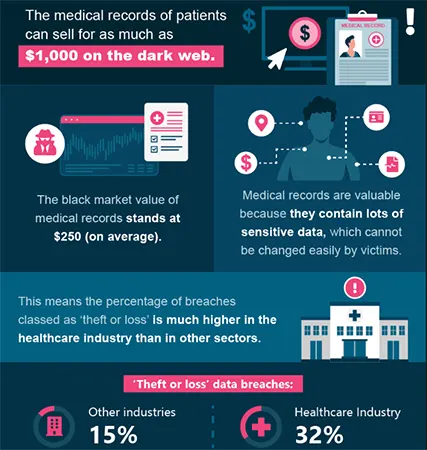
The Role of Cloud Computing
Cloud computing offers doctors and staff, scalable and secure data storage with enhanced accessibility. Needless to say, the highest level of security is also maintained to prevent the loss of reports with cloud backups and advanced safety features.
Best Practices in Protecting Patient Data
Comprehensive Employee Training
Training in legal and ethical aspects of data handling is crucial for hospital-related supply services. This includes technical report handling and understanding the importance of discretion and privacy, recognizing potential breaches, and maintaining confidentiality.
Rigorous Data Handling Protocols
Strict protocols covering all courier processes, regular audits, and assessments ensure consistent data protection. Physical and digital security measures, like secure transport containers and two-factor authentication, are vital.
Partnership with Technology Providers
Collaborating with technology providers enhances data protection capabilities, equipping courier operations with advanced encryption, tracking, and management tools. This proactive approach maintains a leading edge in maintaining confidential data.
Building a Culture of Data Privacy
Creating a culture of prioritizing data privacy involves fostering an understanding of patient information protection and committing to confidential standards.
The healthcare industry is constantly vigilant to avoid any cyber threats and therefore has increased its investment in cybersecurity as seen in the chart below.
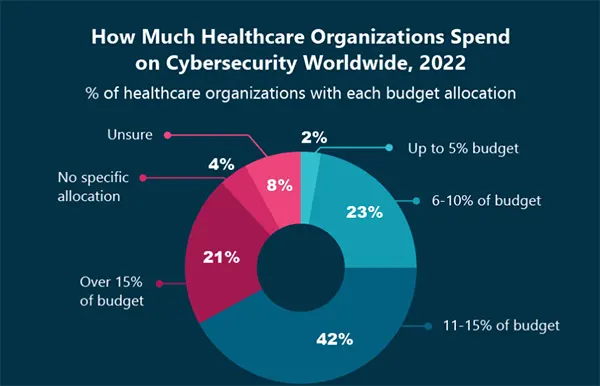
The Role of Medical Couriers in Healthcare
Critical Link in the Healthcare Chain
When a staggering volume of threats pervades the healthcare chain, the responsibility of medical delivery companies becomes even more significant. In situations of emergency as well as in regular scenarios, they need to ensure timely and safe delivery.
Their reliability and efficiency directly impact client care outcomes, demanding operational proficiency and an understanding of the hospitalizing ecosystem.
Building Trust with Healthcare Providers
Establishing trust with healthcare providers is fundamental for medical couriers. This trust is built on a foundation of consistent reliability, strict adherence to data privacy norms, and transparent communication. When healthcare providers have confidence in their courier partners, it facilitates smoother coordination and enhances the overall efficiency of healthcare delivery.
For instance, companies like carGO Health exemplify this trust-building approach. As a leading on-demand medical courier platform, carGO Health offers transparent order tracking and comprehensive order history, ensuring that healthcare providers are always informed about the status of their deliveries.
By delivering a wide range of medical necessities, including medications and blood products, to diverse healthcare entities, carGO Health has established itself as a reliable partner in the healthcare sector. Their commitment to fast, secure deliveries, while maintaining the highest standards of data privacy, resonates well with healthcare providers’ needs.
Expanding Access to Healthcare Services
Couriers play a vital role in expanding healthcare access, especially in remote or underserved areas. They support telemedicine and digital health initiatives, making healthcare more accessible and convenient.
Innovating for the Future of Healthcare
Deliveries for medical supplies are also progressing by embracing new technologies like drone delivery and advanced tracking systems.
The Impact of Data Breaches in Healthcare
Consequences of Data Breaches
Data breaches violate privacy, leading to identity and financial fraud. The sensitivity of health information makes it a target for cybercriminals, necessitating robust security measures.
Financial Implications
Creating a robust technology for the medical industry is necessary because it impacts the finances, including fines and costs associated with breach rectification.
Investing in strong data security measures is both a regulatory necessity and a wise financial decision.
Psychological Impact on Patients
Trust and open communication are two things that are necessities in the healthcare industry. A data breach can profoundly affect a patient’s mental health, causing stress, anxiety, and a loss of trust in medical providers.
It’s pivotal for medicinal entities, including couriers, to protect client reports and support the affected person through clear communication and protective measures.
Strengthening Defenses Against Breaches
Healthcare entities and delivery companies must bolster their defenses against file breaches with advanced cybersecurity measures, regular audits, and comprehensive training programs.
Collaboration within the industry to share threat information and best practices enhances overall online security.
Looking Ahead: The Future of Medical Courier Operations
Embracing Digital Transformation
A major step forward in digital transformation is leveraging AI, blockchain, and IoT for future medical supply procedures. These technologies enhance tracking, delivery, and security, promising a more efficient and reliable service.
Sustainability in Healthcare Logistics
Sustainability for medical supply deliveries can be implemented by exploring options like electric vehicles and eco-friendly packaging, aligning with growing environmental concerns and regulatory pressures.
Personalized and Responsive Services
The trend towards personalized medicine demands more tailored courier services. Adapting to client expectations for flexible delivery times and real-time tracking is crucial for future success.
Collaborations and Partnerships
Future growth depends on forging collaborations and partnerships with healthcare providers, technology companies, and other stakeholders. These alliances can lead to innovative solutions and better integration within the medical ecosystem.
Upholding Trust and Excellence in Medical Courier Services
Reinforcing the Ethical Mandate
The continuous and more frequent cyber threats have made the governing entities create stricter mandates to protect patient reports. This requires constant updates and adherence to the highest standards of privacy and security.
The Role of Transparency
Transparency in the healthcare industry is of prime importance because dealing with patients’ lives is a big responsibility. In the digital ecosystem, maintaining transparency while handling data, privacy policies, and protective measures builds respectability.
Continuous Learning and Adaptation
Staying updated about technological advancements, legal requirements, and medical research on varied subjects requires continuous learning and adaptation.
Embracing innovation and new approaches is key to the growth and sustainability of courier services.
Strengthening Partnerships for a Collaborative Future
Technology is supporting many industries, including the health sector, in enhancing security. To mitigate the chances of cyberattacks, a collaboration between hospitals and medical courier services is necessary. This ensures following industry-related compliance that respects the client’s privacy and retains trust in the healthcare institutions.


